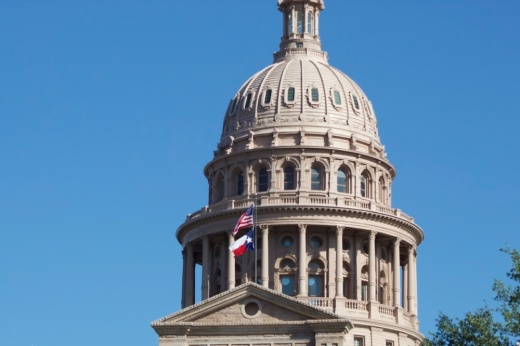“At its core, this legislation is about reaffirming that parents are the chief decision-makers for their children and making clear their fundamental role in their children’s education, moral and religious upbringing as paramount," bill author Sen. Brandon Creighton, R-Conroe, said during a February committee session.
The overview
Senate Bill 12 outlines several requirements for related to parents' involvement in their children's instruction, including a right to choose public, private or homeschooling.
The bill passed the Senate 20-11 in March, and a revised version of the legislation was reviewed by the House Committee on Public Education in May. SB 12's House sponsor Rep. Jeff Leach, R-Plano, called the chamber's committee substitute "remarkably different" from the original Senate version and inspired by his own House Bill 7 that moved out of committee earlier this month.
"We believe it’s important for parents to make informed choices that align with their family’s values, and not the other way around," Leach said May 13.
The bill, based on protecting "fundamental parental rights" over their children's instruction, includes provisions for public and open-enrollment charter schools to:
- Guarantee parent access to information like test scores, curriculums, library materials and attendance records
- Require parental notification if a student's mental or physical safety is affected, and parental consent for consent for any "medical, psychiatric or psychological" treatments
- Require additional parental engagement opportunities, including new information about parental rights
- Allow parents to opt their children out of certain instruction like sex education—which would become an opt-in, rather than opt-out, program for all students under the bill
- Ban diversity, equity and inclusion, or DEI, programs at schools, as well as DEI considerations in the hiring and training of school employees. Districts would also have to set disciplinary policies for any employees who engage in DEI-related activity.
- The square footage and acreage of all district facilities, student capacity and enrollment at those facilities, what the properties are being used for, and whether they're leased or owned
- Information on all board of trustee members filed within a month of their swearing-in, and identification of the board chair
SB 12 would clarify new parental entitlements, like access to student medical records and library materials they check out. It'd also require districts to post syllabus information for all classes online before the start of every semester for parent review.
The bill also calls for districts to post and share updated information about parental rights, including their ability to opt students out of instruction on certain topics. District officials would also have to develop formal plans to improve parent participation and cooperation with teachers.
One new engagement provision would mandate the creation of online portals where parents can provide feedback, with their comments to be presented at the start of each district board meeting. The bill requires those meetings to be held outside standard working hours.
Additionally, the House's substitute of SB 12 lays out an extensive new parent grievance process. Under that framework, district trustees must approve new policies for grievances that can be submitted to campus principals, district administrators, trustees or a superintendent.
The process also prohibits retaliation over a grievance, and requires the district to maintain records like a complaint's supporting documentation and a copy of any final decisions. The Texas Education Agency would also compile statewide information and publish annual reports on each district's grievances.
Zooming in
Classroom instruction topics covered under the DEI ban include programs and activities referencing "race, color, ethnicity, gender identity or sexual orientation." Leach said the legislation would combat discrimination and protect teachings on topics of "historical and cultural significance" related to state and federal holidays, while excluding what he called divisive and politically driven concepts.
House edits to SB 12 also removed a proposed ban on student clubs centered around sexual orientation or gender identity, Leach said.
Rep. Gina Hinojosa, R-Austin, said the House's legislative focus on social issues has "gone overboard" and questioned the scope of topics covered under SB 12. Leach said the bill isn't meant to ban discussion of the individual concepts of diversity, equity or inclusion, but rather practices like race-based hiring quotas and districts' use of DEI facilitators.
Lawmakers largely heard testimony against SB 12 in May, with those opposed saying that legislation may lead to discrimination and lacking education on history and current events.
Matilda Miller said the proposal would lead to the erasure of the LGBT community in the educational space. Chloe Latham Sikes, executive director of the Intercultural Development Research Association, warned SB 12 could support book bans and a "chilling effect" on teaching important topics. And Ash Hall, policy and advocacy strategist with the American Civil Liberties Union of Texas, said the bill's DEI impacts would be unconstitutional with “overbroad censorship,” following similar legislation for higher education institutions passed in 2023.
“Now SB 12 extends that chill to K-12 schools, whitewashing history, punishing truth-telling and enforcing a narrow vision of who belongs in our state," Hall said. "This isn’t neutrality, this is forced erasure."
Megan Benton, strategic policy associate at Texas Values Action, was among those in favor of the bill as Texas parents have a God-given right to educate their children as they see fit. And Vanessa Sivadge, Protecting Texas Children president, supported SB 12's push to prevent "activist institutions" from influencing students.
“By eliminating ideological mandates and reinforcing parental rights, this bill ensures that Texas schools prioritize academic excellence, character development and the safety of every student," she said.
What's next
The House's SB 12 substitute was reported out of the education committee after further review May 16 and has yet to be scheduled for consideration by the full chamber.





